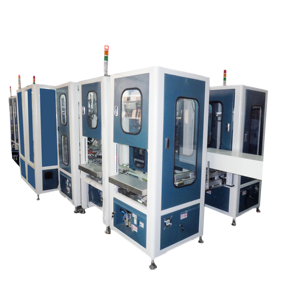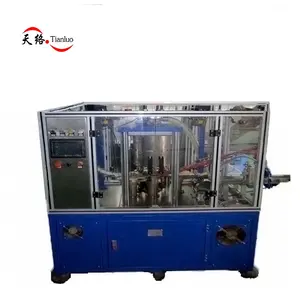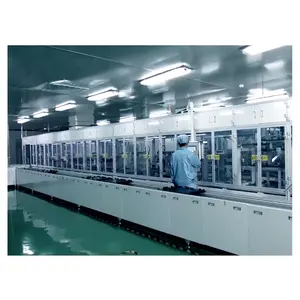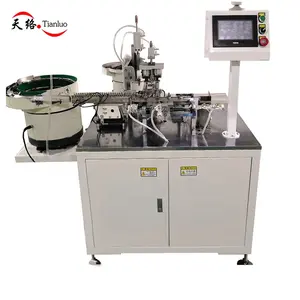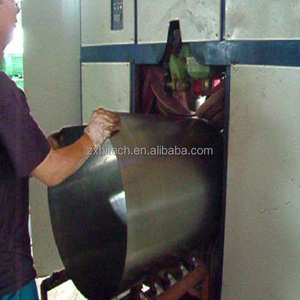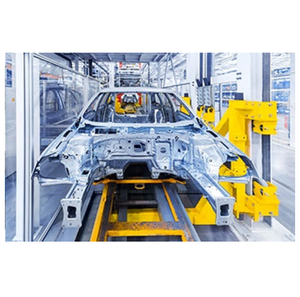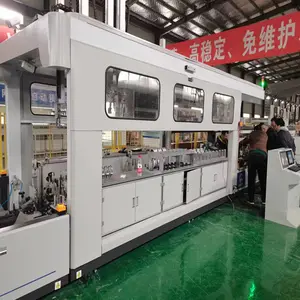Production Line Automation















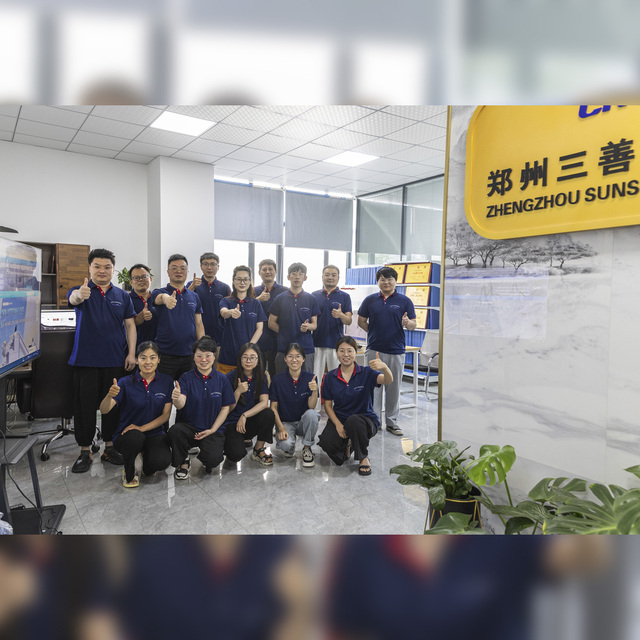

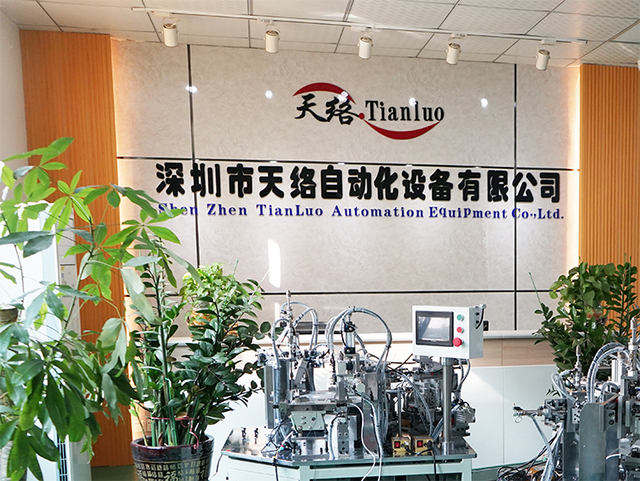








 CN
CN


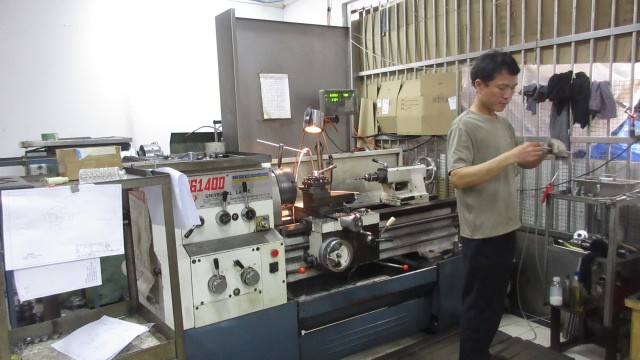
About production line automation
Where to Find Production Line Automation Suppliers?
China remains the global epicenter for production line automation manufacturing, with key industrial hubs in Zhejiang, Jiangsu, Guangdong, and Henan provinces. These regions host vertically integrated ecosystems that combine precision engineering, robotics integration, and advanced material processing. Hangzhou and Suzhou serve as innovation centers for metal fabrication and electronics assembly automation, while Dongguan and Zhengzhou specialize in food, chemical, and plastic processing lines. Proximity to raw material suppliers and port infrastructure enables cost efficiencies of 20–35% compared to Western counterparts, particularly in high-complexity turnkey systems.
The clustering effect supports rapid prototyping and scalable deployment. Suppliers within these zones typically operate multi-disciplinary facilities capable of handling mechanical design, electrical integration, software programming, and factory testing under one roof. This reduces lead times for customized automation lines to 45–60 days on average, with mature logistics networks ensuring reliable global shipping via sea or air freight. Buyers benefit from access to specialized talent pools and component ecosystems—such as servo motors, PLCs, and HMI interfaces—available within localized supply chains.
How to Choose Production Line Automation Suppliers?
Selecting a reliable partner requires systematic evaluation across technical, operational, and transactional dimensions:
Technical Compliance & Certifications
Verify adherence to international quality standards such as ISO 9001 for quality management and CE marking for machinery safety compliance. For electronics and battery-related automation lines, confirm RoHS and REACH compliance where applicable. Request documentation on control system architecture (e.g., Siemens, Allen-Bradley PLCs), sensor integration, and fail-safe mechanisms. Customized solutions should include detailed schematics, I/O lists, and HMI interface previews prior to production.
Production Capability Assessment
Evaluate supplier capacity through verifiable metrics:
- Facility size exceeding 3,000m² to support large-scale assembly
- In-house engineering teams specializing in non-standard automation design
- Integrated capabilities including CNC machining, robotic welding, and electrical panel fabrication
Cross-reference online revenue indicators and reorder rates: suppliers with consistent repeat business (reorder rate >15%) demonstrate reliability and post-sale support effectiveness.
Customization and Quality Control
Assess customization depth by reviewing product configurations offered—such as pipe diameter, material type, filling accuracy, or robot payload. Confirm whether suppliers conduct factory acceptance tests (FAT) and provide video validation of machine operation. Prioritize vendors offering modular designs that allow future scalability. On-time delivery performance should exceed 98%, with response times under 4 hours indicating strong customer engagement.
Transaction Safeguards
Utilize secure payment methods with milestone-based releases tied to production phases. Insist on third-party inspection before shipment, especially for high-value orders exceeding $50,000. Review after-sales service policies, including technical support availability, spare parts inventory, and remote troubleshooting capabilities.
What Are the Best Production Line Automation Suppliers?
| Company Name | Main Products | Automation Focus | Price Range (USD) | Min. Order | On-Time Delivery | Avg. Response | Reorder Rate | Online Revenue |
|---|---|---|---|---|---|---|---|---|
| Hangzhou Force Automation Co., Ltd. | Metal Processing Lines, Articulated Robots | Metal sheet forming, license plate production | $65,320–65,450 | 1–5 pieces | 100% | ≤3h | - | - |
| Jiangsu Xinrongplas Machinery Co., Ltd. | PVC, PE, PPR Pipe Extrusion Lines | Plastic pipe manufacturing automation | $5,000–500,000 | 1 set | 100% | ≤3h | 50% | US $580,000+ |
| Guangdong Weitaopu Automation Equipment Co., Ltd. | Assembly Lines, UAV & Battery Packs | Custom non-standard automation | $62–6,183 | 1 piece | 100% | ≤4h | - | - |
| Zhengzhou Hongdi Machinery Co., LTD. | Mixing, Filling, Packaging Lines | Powder and beverage production automation | $3,329–20,000 | 1 set | 100% | ≤2h | <15% | US $70,000+ |
| Dongguan Yicheng Automation Equipment Co., Ltd. | Electronics & Auto Parts Assembly | High-value industrial automation | $30,000–120,000 | 1 set/acre | 100% | ≤7h | - | - |
Performance Analysis
Jiangsu Xinrongplas stands out with a 50% reorder rate and substantial online revenue, reflecting strong customer retention in the plastic extrusion segment. Zhengzhou Hongdi excels in responsiveness (≤2h) and offers competitive pricing for powder and liquid packaging automation, though its low reorder rate suggests room for improvement in long-term client engagement. Guangdong Weitaopu provides highly flexible custom automation at lower price points, ideal for startups and R&D-focused buyers. Hangzhou Force Automation targets high-precision metal fabrication with consistent mid-six-figure equipment pricing, suitable for industrial-scale operations. Dongguan Yicheng serves niche markets requiring complex electronic and automotive assembly systems, with project-based pricing often linked to facility area rather than unit count.
FAQs
How to verify production line automation supplier reliability?
Cross-check ISO and CE certifications with official registries. Request facility videos showing active production lines and CNC workshops. Analyze transaction history for on-time delivery consistency and review customer feedback focusing on post-installation support and system uptime.
What is the typical lead time for automated production lines?
Standard systems ship within 30–45 days. Custom turnkey lines require 45–75 days depending on complexity. Add 10–20 days for international shipping via sea freight, or 5–7 days via air for critical components.
Can suppliers accommodate OEM branding and software integration?
Yes, most suppliers support OEM labeling and offer compatibility with SCADA, MES, or ERP systems. Confirm PLC brand preferences (Siemens, Mitsubishi, Omron) and communication protocols (Modbus, Profibus, Ethernet/IP) during technical discussions.
Do manufacturers provide installation and training services?
Many offer remote commissioning support. On-site installation and operator training are typically available at additional cost—confirm travel fees and duration upfront. Some include digital manuals and video tutorials as standard.
What are common MOQ and payment terms?
MOQ is usually 1 set or unit, though bulk discounts apply beyond 5 units. Payment structures often involve 30% deposit, 60% pre-shipment, and 10% after delivery. Escrow services are recommended for first-time transactions.



























